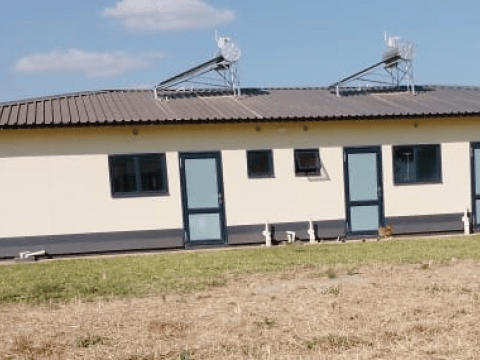Accelerating service delivery improvement in Zambia using citizen generated data

Citizen Voice and Action (CVA) is an approach that World Vision uses to increase dialogue between ordinary citizens and organizations providing public services. It aims to improve accountability from the administrative and political sections of government (national and local) to improve the delivery of public services.
The approach empowers communities to influence public service quality, efficiency, and accountability. CVA is a recognized concept for its high-quality Social Accountability initiatives across the World Vision partnership. It is a local-level advocacy and right-based approach that aims to increase dialogue between Service Providers, Service Users, and Government, both Political and Administrative.

Educated, empowered, and mobilized citizens are encouraged to assess the performance of public services provided in their communities. They are encouraged to compare actual services with the standards of service that their government has committed themselves to providing. Citizens and those providing services (service providers), government, and local partners identify actions to improve public services.
This approach is based on the view that individuals and ‘the community’ are citizens of nation-states. Each citizen has the right to communicate with and have a relationship with their government. Active citizenship and engagement with the government help governments work effectively and provide quality services. Citizen Voice and Action aim to strengthen this relationship between citizens and government by educating and empowering communities to talk and work with government service providers and government officials about the performance of basic services.

Through the CVA model, we take an inclusive and community empowerment approach to social accountability, Take a rights-based approach to social accountability, Work in partnership, build relationships for impact, Increase access to information, and increase citizen's voice by encouraging dialogue among stakeholders; and Increase capacity for social accountability. We ensure that the views and needs of commonly marginalized or vulnerable groups are represented and served. Our social accountability work encourages inclusivity, participation, and transparency in good governance practices.

World Vision Zambia builds capacities and empowers citizens to engage local authorities, elected members, and traditional and civic leaders in the planning, implementing, and evaluating service performance in government institutions to address crucial gaps in service delivery. Our community working groups work as catalysts in facilitating and supporting social development. CVA working groups endeavour to work with other like-minded organizations and influential individuals, community leaders, and teams in positions of power and decision-making to foster change. This collaboration has created platforms, networks, coalitions, and other decision-making forces.
World Vision Zambia works with duty bearers to provide available, simplified, and translated information into local languages, including comprehensive plans, budgets, and performance reports from administrative and political authorities. We support ordinary citizens at the community level to understand, contribute, and monitor public service performance. We acquire and share relevant materials, i.e., government policies, standards, and guidelines on basic rights to quality and standard service. We sensitize communities by using drama, leaflets, and branded apparel to share information on social accountability, thereby increasing citizens’ access to information on their rights.

World Vision Zambia uses accountability tools such as monitoring standards and scorecards to collect evidence that informs the plans for improving service performance. We teach citizens to understand government policies, standards, and guidelines to establish and maintain a constructive dialogue with public officials, demanding justifications and explanations on the performance gaps in service delivery.
Similarly, we also build the capacity of government officials to understand the partnership between authorities and citizens (Citizen-State relation) in the processes of social development. As a result, elected members should provide justifications and explanations to citizens about their decisions on the management and performance of services in government institutions. CVA community working groups in our 28 Area Programme have engaged key government decision-makers at district, Sub-national, and national levels.

Through social accountability, World Vision Zambia envisions Citizen-driven local governance within a state for sustainable development. Citizen and community participation through the empowerment of CVA Community Working Groups with the skills to engage decision-makers using citizen-generated data,300 CVA groups in 9 of the ten provinces of Zambia in 28 Area Programmes have compelled the Zambian government to respond positively to finance the proposals to address the identified gaps to improve public service delivery.
\Using data from Monitoring standards and scorecards as evidence, in FY2022 and 2023, the CVA community working groups have influenced the acquisition of government funds amounting to K68,239,378.00. (Sixty-Eight Million Two Hundred Thirty-Nine Thousand Three Hundred Seventy-Eight Kwacha)/ USD3,546,745 (Three Million Five Hundred Forty-Six Thousand Seven Hundred Forty-Five). These funds have improved service delivery by constructing classrooms, Ablution blocks, Bridges, Science Laboratories, Community police posts, Maternity annexes, Health posts, Teacher and Health workers' accommodation, and deployment of Health workers and Teachers to local institutions.
The experience has demonstrated that once communities are empowered with the correct information on their entitlements and corresponding responsibilities, they can sometimes seek an audience with relevant Government officials or other significant development actors on matters that affect their well-being.